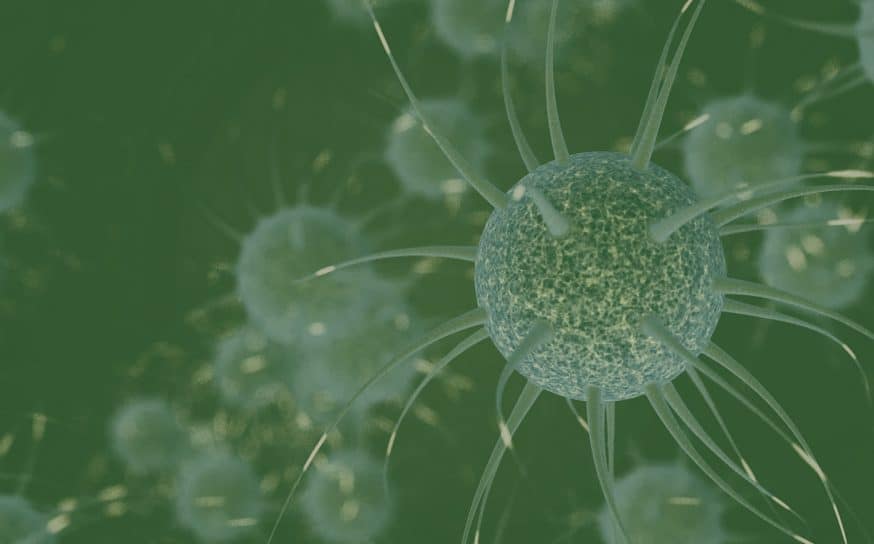A Married Design Team Transforms an Unexpected Material into Statement Pieces for the Home
In rare form.
-
CategoryArtisans, Arts + Culture, Design, Homes + Spaces, Makers + Entrepreneurs, Visual Art
-
Written byJennie Nunn
-
Photographed byMark Tanner
Three years ago in the height of the pandemic, husband-and-wife design duo Mariella Avenarius and Hector Limón—co-founders of San Pedro–based company Bridge + Fog—made a life-altering career change. Hector, a formally trained architect hailing from Puebla, Mexico, and Mariella, a former advertising executive for companies including Ford and Nissan, decided to take a complete leap of faith and launch a design studio centered around a single, unconventional material: concrete.
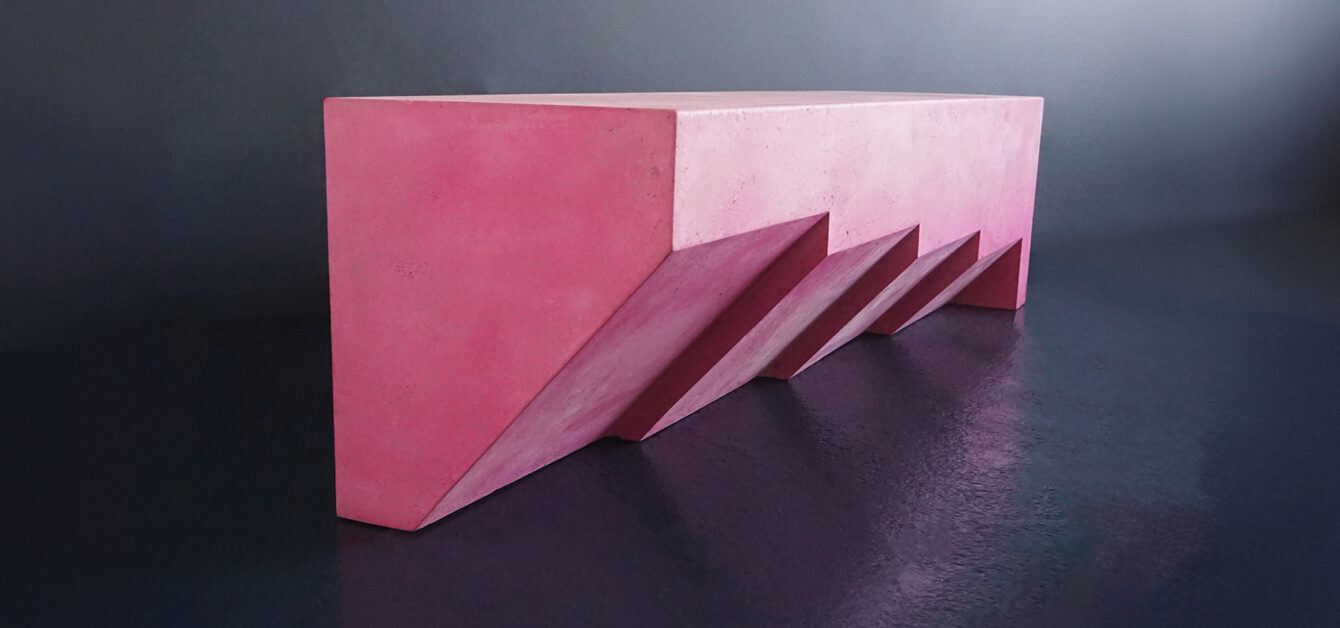
During the initial days of lockdown in Los Angeles County, they received the keys to their studio. “The moving company canceled on us, so we rented a U-Haul and moved in,” says Mariella. That’s always a milestone for us. It was exciting and terrifying, and we kept questioning ourselves.”
But their second-guessing was short-lived. What began as a pipe dream has evolved into an ever-expanding collection of custom and made-to-order concrete designs sought after by notable interior designers, art galleries and even the Museum of Latin American Art in Long Beach.
The designs, now totaling approximately 31 pieces, consist of coffee tables, planters, console tables, side tables, benches and small accessories such as skulls, in custom colorways spanning pink, black, yellow and crisp white. They also incorporate copper, brass, aluminum, wood and stainless steel into their designs.
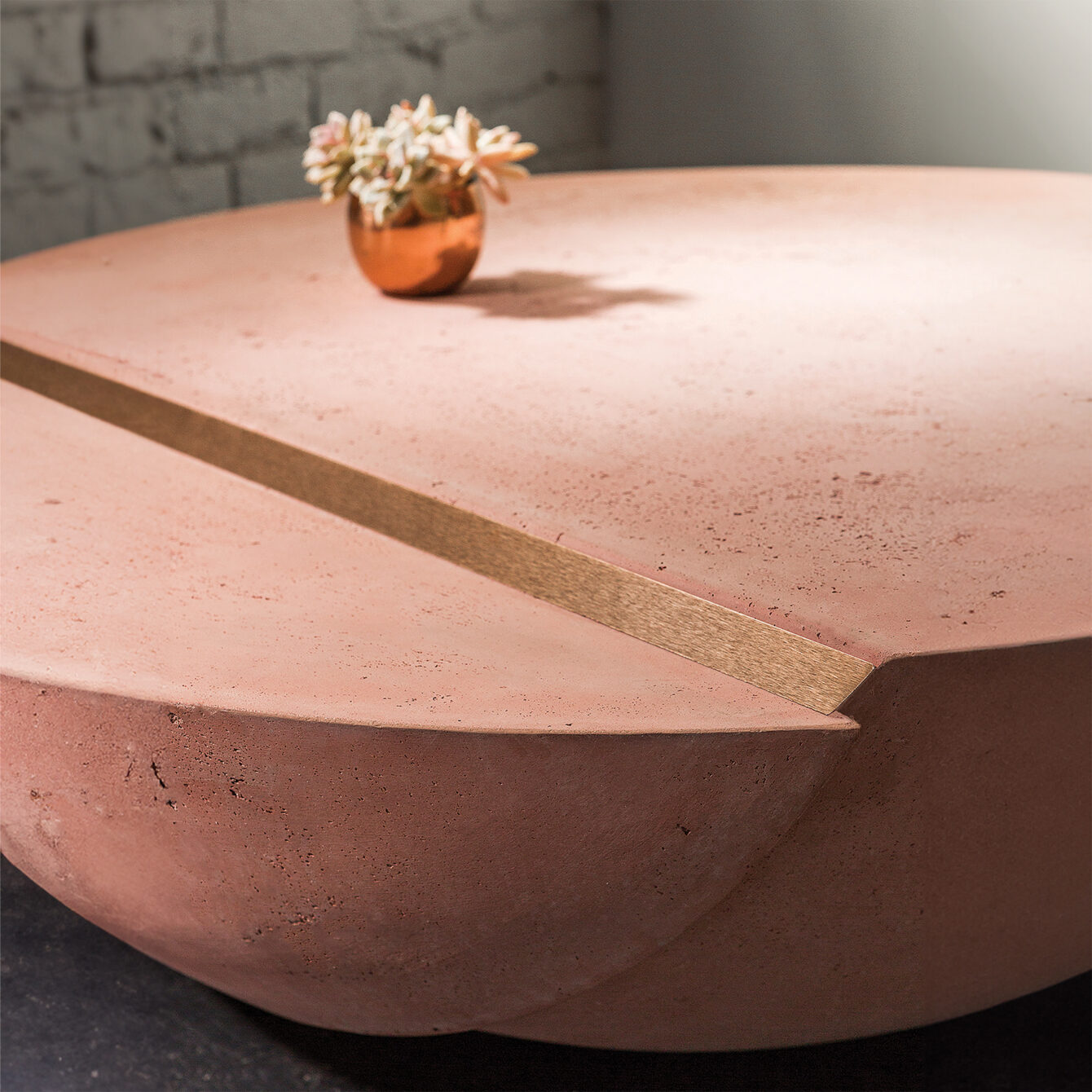
Hector, who previously worked in construction specializing in ornamental architecture—manufacturing window trimming, balustrades and columns for high-end homes throughout Malibu, Beverly Hills, Bel-Air and beyond—spent several years reading and assessing blueprints. He found himself entranced with the material aspect and pondered translating concrete into high design.
“I saw the potential of how I could turn it into a medium,” explains Hector, who, along with Mariella, is a painter. “It’s a very pliable substance, and I wanted to do something a little bit more artistic. The stuff we were making wasn’t really the stuff that I liked. It was too old-fashioned, too ornate, rococo and seen-it-a-thousand times. I didn’t want that anymore. Working in the construction business can be very tough, and I was kind of disenchanted with the whole business method. I told Mariella that I wanted to reinvent myself, and she was patient enough to put up with me while I locked myself away in a laboratory and tinkered with my formula.”
His inventive formula involved keeping the integrity of the concrete strong and durable, while reducing two-thirds of the weight. After endless hours of experimenting, the coffee tables now weigh around 100 pounds. Hector and Mariella enlisted friends and family as focus groups to test wear and tear on prototypes, giving specific directives like standing on tabletops and ramming vacuum machines against the sides.
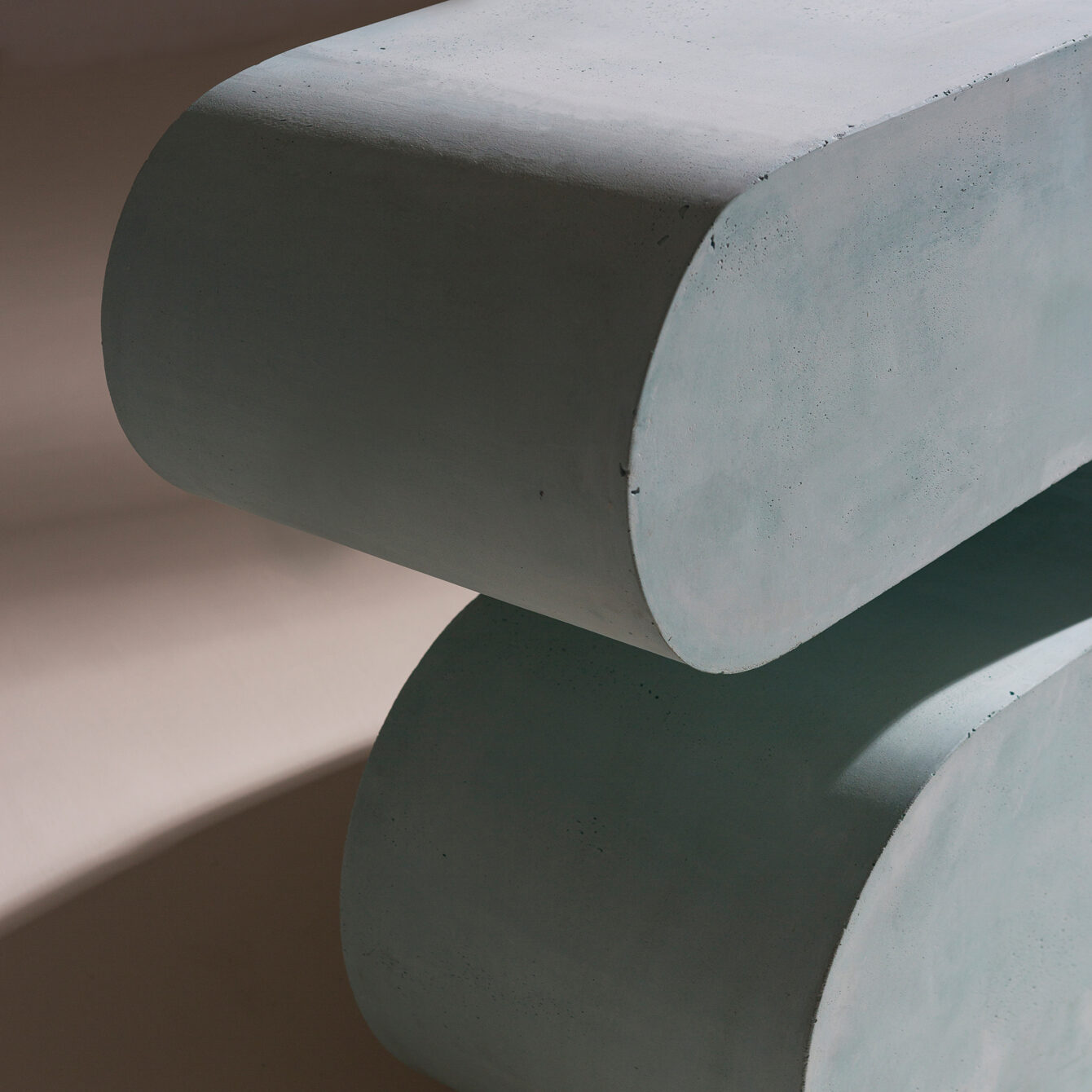
“That’s when we decided we had something pretty special on our hands,” adds Mariella. “When you think of concrete, most people think of it as a building product to construct a building, a sidewalk or a park bench. We wanted to change people’s perception of the environment of concrete and where it can live—not just outdoors, but inside your home. It can be elevated into something much more artistic.”
Hector, who first sketches designs by hand and then uses a 3D program, is influenced by how concrete plays with light. He’s also inspired by the works of architecture greats including Frank Lloyd Wright, Tadao Ando and Charles-Édouard Jeanneret, or Le Corbusier.
“I love the way they were able to take simple concrete and turn it into something eye-catching,” says Hector. “But I’m really inspired by everyday architecture. We try to go to museums and art galleries at least once a week just so we are exposed to art.”
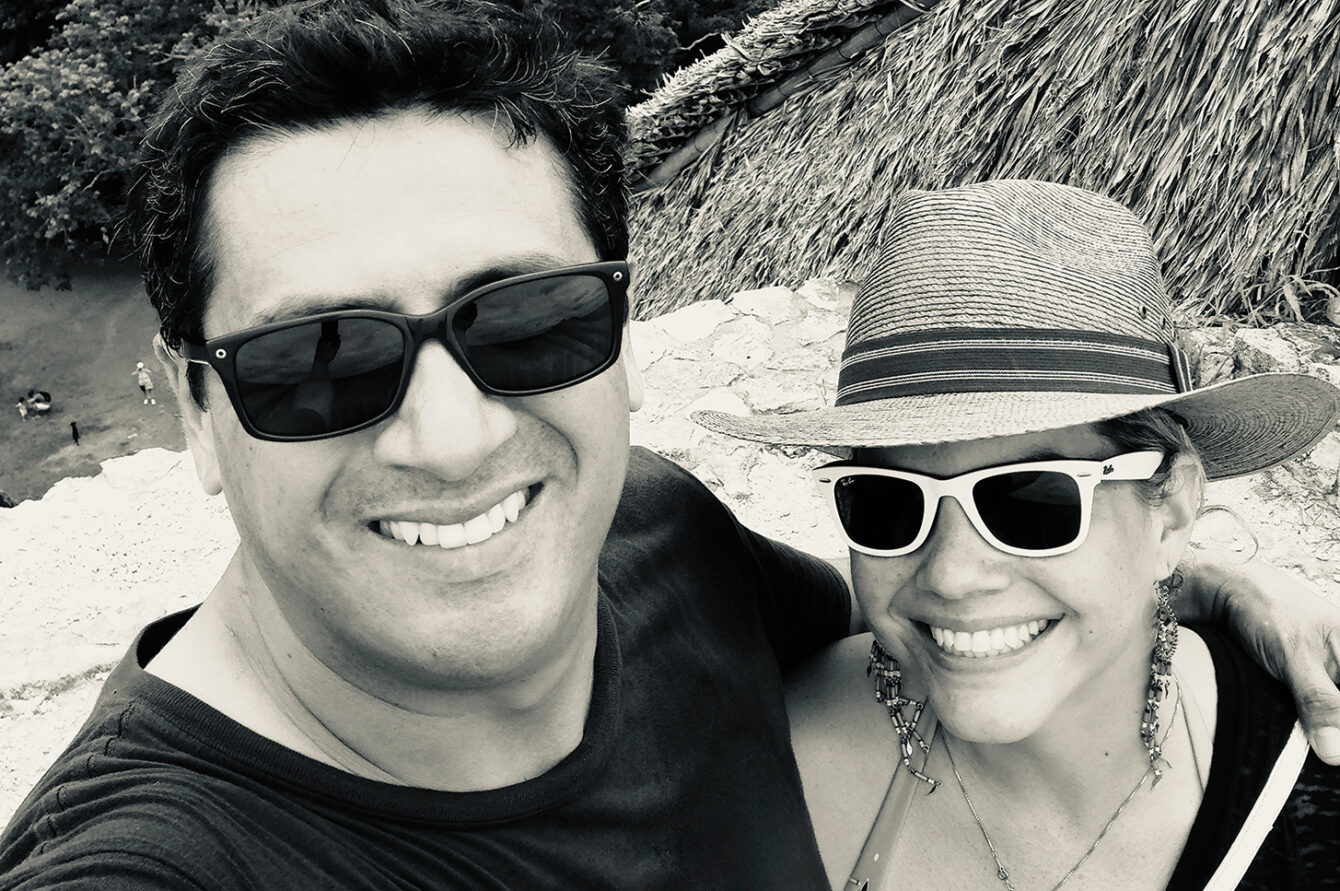
Hector is featured as a solo artist, HVLimón, with an exclusive collection at Twentieth Gallery in Los Angeles, and is working on new wall sculptures. “We are proud of the fact that we might be the only ones doing this right now,” says Hector. “There are a lot of people working in concrete, but they might be doing things like kitchen countertops or bathroom sinks. That was the one thing I never wanted to do. I wanted to make designs, and that was the whole goal from the beginning.”
The duo is looking ahead with a line of trays and incense holders debuting next month, followed by lighting and seating, and a long-term dream of a solo museum exhibition. “We are changing the DNA of concrete and how it can be used,” says Mariella. “So it’s also like an education process, and we’re lucky that our clients have been so open and willing. It’s very rewarding.”
A New CBD-Based Drug Could Be a Breakthrough for Epilepsy Treatment
A California teen participated in the study with dramatic results.
The Hollywood Bowl Goes All Out for Its 100 Year Celebration This Summer
Bringing the stars under the stars.
Snow Season Arrived Early, and We’re Super Stoked
How California ski resorts are upping the game on slope safety.
Get the Latest Stories





